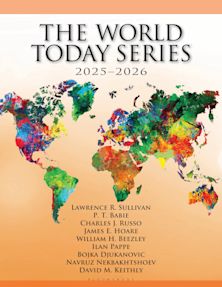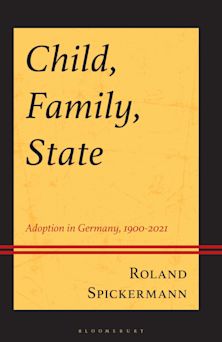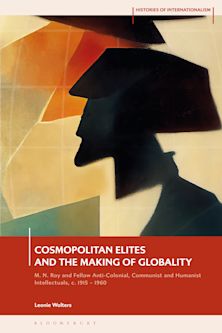- Home
- ACADEMIC
- History
- World History
- Epidemic Encounters, Communities, and Practices in the Colonial World
Epidemic Encounters, Communities, and Practices in the Colonial World
Poonam Bala (Anthology Editor) , Russel Viljoen (Anthology Editor) , Sahara Ahmed (Contributor) , Poonam Bala (Contributor) , Mark Briskey (Contributor) , Apalak Das (Contributor) , Sohini Das (Contributor) , Suvankar Dey (Contributor) , Mathew Franco (Contributor) , Amina Issa (Contributor) , Vicki Luker (Contributor) , Saurav Kumar Rai (Contributor) , Jeff Ramsay (Contributor) , Arabinda Samanta (Contributor) , Jacob Steere-Williams (Contributor) , Elizabeth Van Heynigen (Contributor) , Russel Viljoen (Contributor)
Epidemic Encounters, Communities, and Practices in the Colonial World
Poonam Bala (Anthology Editor) , Russel Viljoen (Anthology Editor) , Sahara Ahmed (Contributor) , Poonam Bala (Contributor) , Mark Briskey (Contributor) , Apalak Das (Contributor) , Sohini Das (Contributor) , Suvankar Dey (Contributor) , Mathew Franco (Contributor) , Amina Issa (Contributor) , Vicki Luker (Contributor) , Saurav Kumar Rai (Contributor) , Jeff Ramsay (Contributor) , Arabinda Samanta (Contributor) , Jacob Steere-Williams (Contributor) , Elizabeth Van Heynigen (Contributor) , Russel Viljoen (Contributor)
This product is usually dispatched within 1 week
- Delivery and returns info
-
Free CA delivery on orders $40 or over
You must sign in to add this item to your wishlist. Please sign in or create an account
Description
The essays in this volume examine the nature and extent of disease on indigenous communities and local populations located within the vast regions of the Indian and Pacific Oceans as a result of colonial sea power and colonial conquest. While this established a long-term impact of disease on populations, the essays also offer insights into the dynamics of these populations in resisting colonial intrusions and introduction of disease to newly-acquired territories.
Table of Contents
Poonam Bala
Chapter 2 The Uncouth Woes: The Prevalence of Venereal Disease in the British or European Troops in India c 1864-1918
Apalak Das
Chapter 3 Bubonic Plague and State Control in Zanzibar c.1897 1905
Amina Ameir Issa
Chapter 4 Cape of Contagion: Cape Town, Contagion and the Curse of Smallpox c.1713, 1755 and 1767
Russel S.Viljoen
Chapter 5 Measles: The Undercover Killer
Elizabeth van Heyningen
Chapter 6 Slave Traders, Merchants, Explorers and Academicians: The Historiography of Scientific Travel from the Seventeenth to Nineteenth Centuries
Matthew E. Franco
Chapter 7 The Continuing Search for Green Gold: Quest for Medical Plants in Colonial Period
Sohini Das
Chapter 8 Disease and Dependency in Kweneng Botswana, c.1880-1930
Jeff Ramsay
Chapter 9 Colonialism, Epidemics and the Indian Experience c.1817-1920
Saurav Kumar Rai
Chapter 10 Colonisation, Disease and Displacement in Aust
Product details
| Published | Jan 31 2023 |
|---|---|
| Format | Hardback |
| Edition | 1st |
| Extent | 380 |
| ISBN | 9781793651228 |
| Imprint | Lexington Books |
| Dimensions | 237 x 160 mm |
| Publisher | Bloomsbury Publishing |
About the contributors
Reviews
-
Bala and Viljoen have edited and contributed to a collection of well-chosen essays analyzing the impact of contagious disease on colonial societies…. three threads applicable to European imperialism at large emerge. First, the epidemics that occurred were the products of European agency. Contagious diseases appeared in the regions marked by European trade, settlement, and the requisition of labor. Second, the epidemics aggravated existing divisions in colonial societies. The common experience of death and disruption did not bring settlers and Indigenes together, but rather fostered suspicion and contention. In the examples presented, both the colonizers and Indigenous peoples invoked their own healers and remedies, while the European administrators stood aloof as they imposed quarantine and sanitation measures. Third, the epidemics allowed Europeans to regard the bodies of the Indigenes as reservoirs of contagion, a view that facilitated the construction of hierarchical and parallel colonial societies. Taken together, the essays illustrate a needed focus on the historical role played by contagious diseases in the progress and manifestations of European imperialism. Recommended. Upper-division undergraduates. Graduate students and faculty.
Choice Reviews
-
It has been fifty years since Alfred Crosby elucidated the consequences of colonialism and conquest in his book, the Colonial Exchange. Since then, scholars from a variety of fields have added to a growing body of knowledge on the medical, social, political, and economic effects of the transmission of disease through imperial contacts. In this new collection of essays, Epidemic Encounters, editors Poonam Bala and Russel Viljoen offer a superb collection of fourteen chapters on diverse topics from the exchange of knowledge on botanical medicinals, the nature of collaboration by peripheral agents, to ‘forgotten pandemics.’ The broader effects of disease transmission to virgin, indigenous peoples are vividly portrayed in chapters detailing ecological devastation, migrant labor shortages, population displacement, and other long-term consequences of epidemic diseases. The geographical and topical scope of the collection is truly impressive. More than a simple recitation of familiar topics, this volume provides a more granular and expanding view of the linkage between colonial exchange and its long-lasting effects. In a world still struggling with the global Corona virus pandemic, this volume provides a warning of possible long-term effects of epidemics and the lingering legacy of imperialism.
Jeffrey Jentzen, University of Michigan
-
The spread of infectious diseases both aided and undermined colonial projects around the globe. This timely and geographically diverse collection draws together fine scholarship and multiple voices to dissect the impact of epidemics on empire. It offers an excellent entry point and a substantive update on the historical maladies of imperialism.
Peter Hobbins, Australian National Maritime Museum and The University of Sydney

ONLINE RESOURCES
Bloomsbury Collections
This book is available on Bloomsbury Collections where your library has access.



































